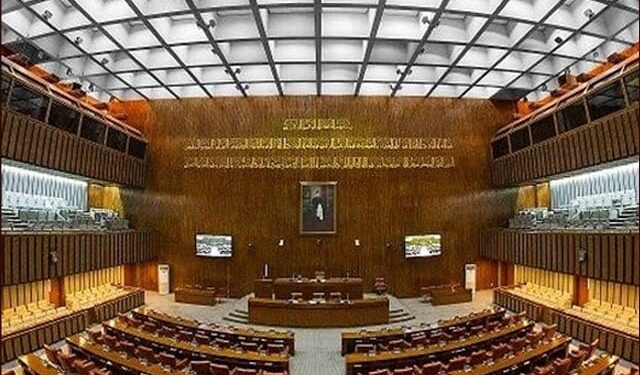Introduction: Mounting Governance Challenges Under Senate Scrutiny
ISLAMABAD: A wave of criticism emerged from recent meetings of multiple Senate Standing Committees in Pakistan, spotlighting widespread issues in the energy sector, construction mismanagement, financial irregularities, and prolonged land disputes. The discussions revealed systemic flaws, negligence by top officials, and growing public sector inefficiencies.
Senate Committee on Energy: IPPs, Circular Debt, and Load Shedding Under Fire
The Senate Standing Committee on Energy, chaired by Senator Mohsin Aziz, voiced strong displeasure over the handling of Independent Power Producers (IPPs), growing circular debt, load shedding, and suspected irregularities across Pakistan’s energy sector. The meeting highlighted that despite repeated demands for reforms, problems remain unresolved and are adversely affecting the economy.
Committee members also criticized the absence of the Federal Minister for Energy, describing it as a sign of indifference toward Pakistan’s energy crisis. Members argued that without high-level representation, meaningful dialogue and accountability remain elusive.
They emphasized that the circular debt, now exceeding Rs 2.7 trillion, is largely driven by inefficiencies in billing, theft of electricity, and delayed subsidy payments. Concerns were also raised about excessive capacity payments to IPPs, which burden the national exchequer regardless of actual power consumption.
Islamabad Model Jail Construction: Funding Shortfalls and Rising Costs
A separate Senate committee meeting chaired by Nasir Mahmood examined delays in the construction of the Islamabad Model Jail. Capital Development Authority (CDA) officials revealed that the project might come to a halt due to non-disbursement of funds.
Officials warned that construction costs are escalating significantly due to delays and inflation in building material prices. What started as a security-enhancing project is now mired in bureaucratic red tape and financial uncertainty. The committee questioned why proper financial planning had not been ensured when the jail project was initiated.
Pak PWD Murree Land Dispute and Premature Recruitment Issues
The Senate meeting also addressed longstanding issues related to the Pakistan Public Works Department (Pak PWD), including a land dispute in Murree. Officials informed the committee that the Ministry of Housing had finally secured a legal victory in the case, which had dragged on for years.
However, concerns quickly shifted to the premature recruitment of 617 employees by Pak PWD. The Finance Division warned that such unauthorized appointments could place a multi-billion-rupee burden on the national treasury.
The committee demanded strict oversight of recruitment practices in government departments and emphasized the need for transparency and merit-based hiring. Senators insisted that financial prudence must be exercised, especially when the country is grappling with fiscal deficits and seeking external assistance.
Illegal Occupation of Government Land in Murree
In a shocking revelation, it was disclosed that a former watchman had been illegally occupying government land in Murree for over four decades. Senators expressed outrage at how such encroachments were allowed to persist for so long without intervention.
Committee members called for immediate eviction proceedings and a full investigation into why local authorities failed to act. They questioned the role of oversight bodies in ensuring the protection of government property and assets.
Collapse of Jinnah Square Interchange: Construction Quality Under Scrutiny
Meanwhile, in a meeting chaired by Senator Junaid Akbar, attention was drawn to the sudden collapse of a portion of the newly constructed Jinnah Square Interchange. The project, which was expected to be completed in 120 days, was wrapped up in just 60 days.
Committee members questioned why construction timelines were compressed and whether safety standards were compromised. The premature subsidence of the underpass only three months after completion raised alarm bells about the quality of construction and project oversight.
Senators criticized the CDA and construction contractors for neglecting quality control. They also sought detailed records of the project’s tendering process and demanded accountability from all stakeholders involved.
Telecom Authority Allowances Scandal: Rs 56 Million in Unauthorized Payments
The Senate’s examination of governance also extended to the Pakistan Telecommunication Authority (PTA). It was revealed that the Chairman and members of the PTA had received allowances amounting to Rs 56 million in violation of established rules.
This revelation provoked strong reactions from the committee, which called for an immediate and transparent investigation. Members demanded that all excess payments be recovered and that disciplinary action be taken against those who authorized them.
Senators argued that public sector leaders must lead by example and ensure compliance with financial regulations, especially in regulatory bodies that oversee multi-billion-rupee industries.
Conclusion: Urgent Need for Institutional Reforms
The recent wave of Senate committee meetings underscores a growing concern within legislative circles about the state of governance in Pakistan. From mismanaged construction projects and energy sector inefficiencies to unauthorized financial payments and unchecked land occupation, the issues point to deep-rooted structural problems.
Lawmakers stressed that these are not isolated incidents but symptomatic of broader governance failures. They urged the executive branch to take immediate corrective action, conduct audits, and strengthen institutional accountability mechanisms.
Only through transparent governance, timely audits, and merit-based appointments can Pakistan hope to overcome its development hurdles and restore public trust in state institutions.

























